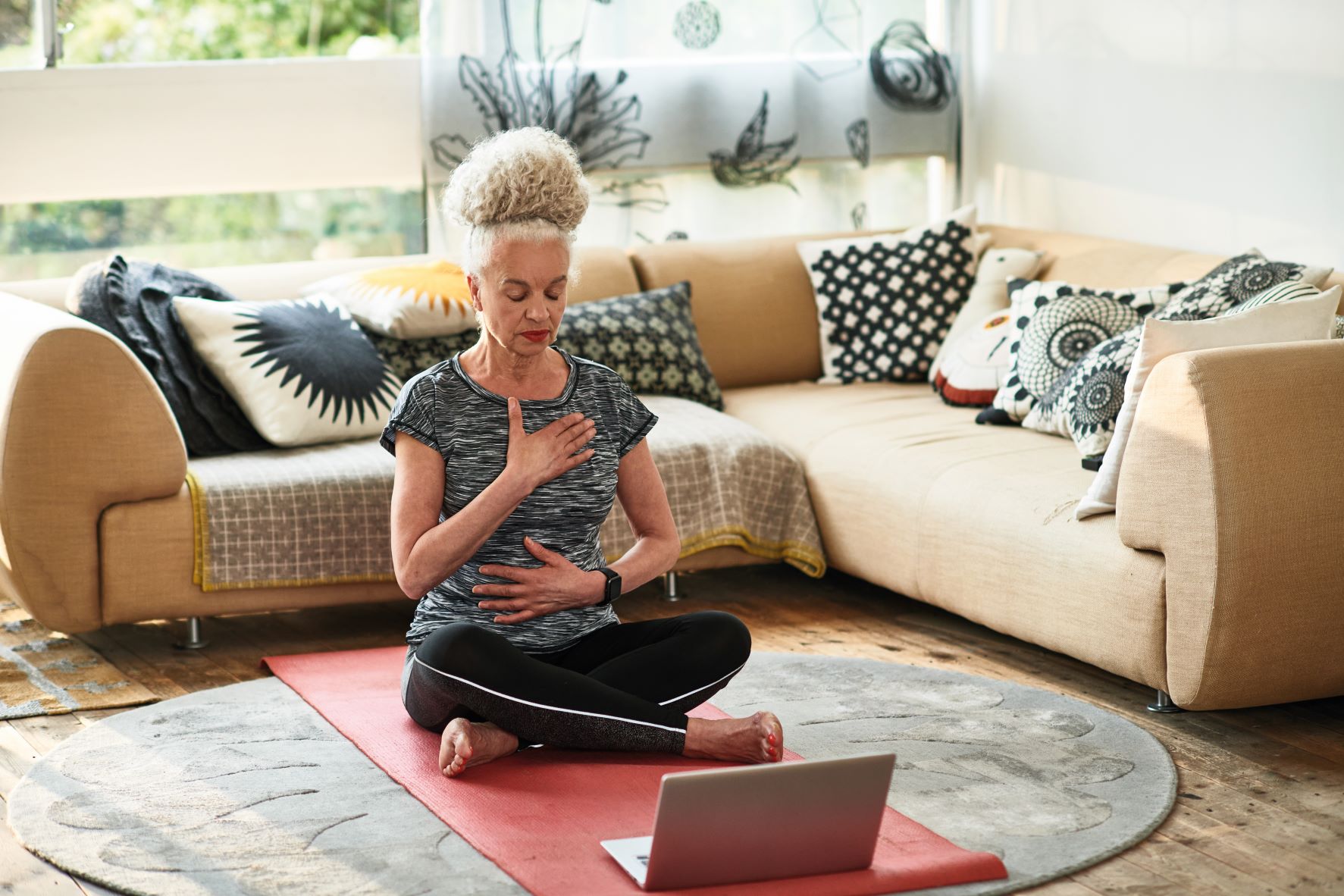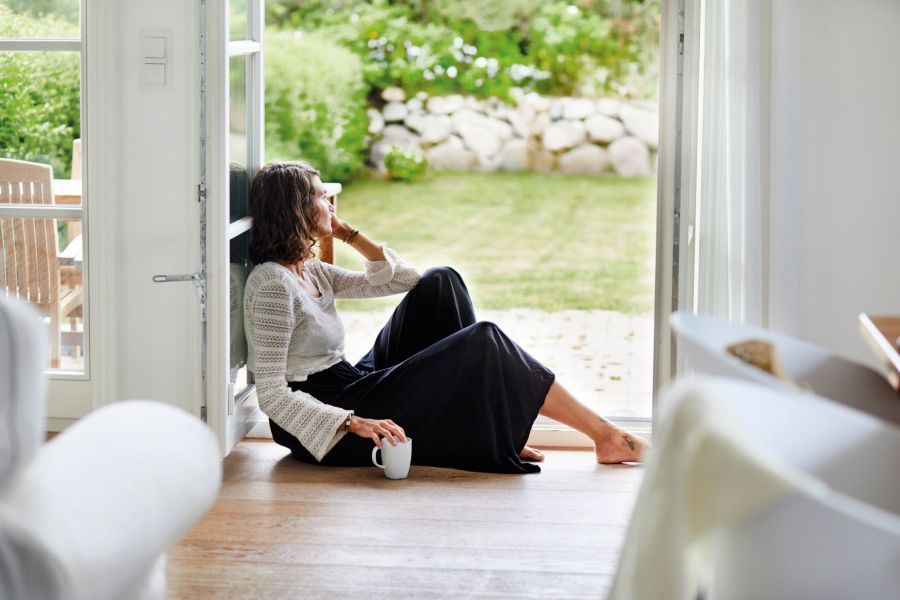It’s Stress Awareness Week, and according to a study on workplace stress statistics, one in five people in the UK report feeling stressed more days a month than not. Thankfully, small, daily changes to the way you live your life can add up to a wider transformation – especially when it comes to managing stress. Here, we share 12 simple daily habits to help you reduce your stress and anxiety…
Words: Katy Sunnassee | Photographs: Getty
1. Limit your time on social media each day
Poor time management when it comes to your use of social media is correlated to decreased moods. ‘Why not try getting into the habit of setting a daily time limit on your scrolling to see if it could reduce your stress and anxiety?’ asks Dr Robin Hart, psychologist and co-creator of the Companion app.
You could also consider the other benefits this might have within your life. ‘Would it free up more time for other activities? Could this have a positive impact on your friendships, relationships, work productivity and general levels of stress?’ Dr Hart continues. Try allocating one or two half-hour ‘scrolling slots’ per day, making sure not to have one less than two hours before bedtime, and see whether it helps your mood.
2. Make movement a daily habit to reduce stress and anxiety
Though we appreciate you more than likely already know the many myriad benefits of keeping up your fitness levels, the importance of exercise and regular movement in general cannot be overstated.
‘Exercise isn’t only important for your physical health, it has many direct and indirect benefits for your mental wellbeing, too,’ says Dr Hart. ‘Even gentle exercise, such as walking and stretching, can help relieve a low mood, ease anxiety related tension and reduce stress, so it’s worth making movement one of your daily habits.’

3. Prepare ahead to eat well when you’re stressed
What you eat really affects how you feel. Most of us know what is healthy and to reduce what isn’t, but in times of stress and anxiety, it becomes harder to make those healthy choices, as our brains are hardwired to seek comfort and pleasure, and this quickly becomes a daily habit.
If you stock your cupboards with healthy meals and treats, and plan ahead for what you will eat and when – including some healthy takes on comfort foods – it will help you stay on track food-wise, when the going gets tough, and will help support not only your mental wellbeing, but your physical health, too.
Related: Guilt-free eating – simple swaps to make comfort food healthier
4. Try the 5-4-3-2-1 method to ground yourself
The simple method works like this: you focus on five things you can see, four things you feel, three things you can hear, two things you can smell and one thing you can taste. Getting into a daily habit of focusing on all these things helps distracts your mind and allows you to focus in the present moment, thereby reducing your stress and anxiety
5. Hold some ice to combat anxiety
If you feel a panic attack building, try holding an ice cube wrapped in a towel, to avoid irritating your skin. Another trick to help stop an attack in its tracks is to plunge your face into a bucket of ice for 10 seconds. This isn’t always practical if you’re out and about, but doing so instantly takes you out of anxiety mode and right into the present. The rush of endorphins and regulation of your temperature helps quell the moment of panic or stress.

6. Try relaxing daily habits to reduce stress and anxiety
Making time for relaxation is one of the most important daily habits there is to reduce stress and anxiety. Relaxing isn’t merely doing nothing – it’s giving your body and brain a chance to recuperate.
‘Relaxation helps raise energy levels, it helps you think clearly and more realistically, which, in turn, helps your ability to focus and concentrate,’ says Dr Hart. ‘It also helps you manage and reduce stress, can improve your memory and also improve decision making and problem solving.’
7. Set a worry time and write down your thoughts
Rather than letting everything overwhelm you all the time, it’s helpful to set aside a dedicated time to outline your worries, in a similar way that you set aside time for social media, so you can write down what is bothering you. Getting things down on paper helps you organise your thoughts, and it will help you brainstorm ways to mitigate worries
8. Listen to ASMR to reduce stress
Autonomous sensory meridian response (ASMR) has become huge over the past few years (Top Santé first covered it in 2015!). It’s a relaxing, often sedative sensation triggered by certain sounds such as whispers, paper flipping, gentle typing, or tapping. ASMR only seems to work on some people, but if you’re one of them, it’s a great addition to your de-stress toolbox.
TRIED & TESTED: ‘I love Latte ASMR and Maria’s Gentle Whispering on YouTube. They always help chill me out, especially the sounds of crinkly note pads and tapping on plastic or wood. You’ll either love it as I do, or hate it!’ Katy, editor.

9. Try a weighted eye mask to relieve tension
Many insomniacs benefit from using a weighted blanket, but weighted eye masks can also reduce stress and relieve facial tension. They come with the added benefit of deep pressure stimulation, which helps turn off your body’s sympathetic nervous system – the one linked to fight or flight – and help switch on the parasympathetic system.
TRY IT: National Trust Lavender Eye Pillow (£16) is plastic-free and handmade in the UK.
10. Squeeze a stress ball
It may sound silly, but when trying to reduce daily moments of stress and anxiety, one of the best habits to try is squeezing a stress ball. The squeezing action activates the muscles of your hand and wrist. Then, when releasing the grip, you relax those muscles. The repeated pattern of grip and release helps alleviate tension and stress, improving nervous system functioning and reducing stress hormones.
11. Help others to reduce your own stress
It’s known that helping others helps lower your own stress levels. This could be as simple as sweeping the leaves from your neighbour’s driveway to help them out, or doing the shopping for someone. Or it could be bigger in terms of helping out at a homeless shelter or volunteering for a local charity. You’ll not only be helping others, but the sense of gratification will be a boost to your own wellbeing and will help you forget about, for a time anyway, your own worries.

12. Practice self-compassion when feeling stressed
Research has demonstrated that people who are both kind and respectful to themselves as well as to others have an enhanced sense of wellbeing. ‘It also promotes greater tolerance to cope with difficulties in life and promotes a greater sense of hope and vision beyond the problems you face,’ says Dr Hart.







